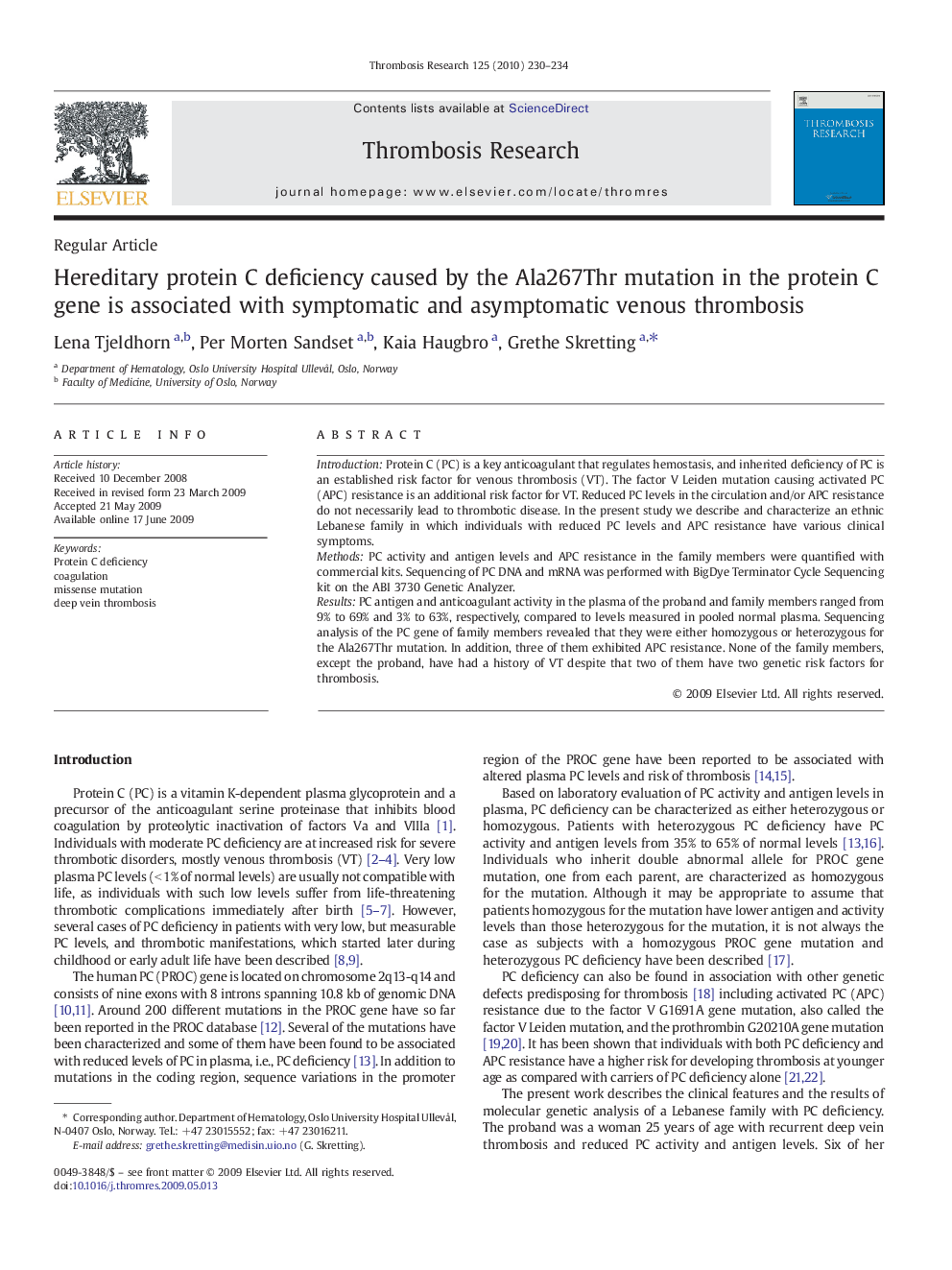| Article ID | Journal | Published Year | Pages | File Type |
|---|---|---|---|---|
| 3027930 | Thrombosis Research | 2010 | 5 Pages |
IntroductionProtein C (PC) is a key anticoagulant that regulates hemostasis, and inherited deficiency of PC is an established risk factor for venous thrombosis (VT). The factor V Leiden mutation causing activated PC (APC) resistance is an additional risk factor for VT. Reduced PC levels in the circulation and/or APC resistance do not necessarily lead to thrombotic disease. In the present study we describe and characterize an ethnic Lebanese family in which individuals with reduced PC levels and APC resistance have various clinical symptoms.MethodsPC activity and antigen levels and APC resistance in the family members were quantified with commercial kits. Sequencing of PC DNA and mRNA was performed with BigDye Terminator Cycle Sequencing kit on the ABI 3730 Genetic Analyzer.ResultsPC antigen and anticoagulant activity in the plasma of the proband and family members ranged from 9% to 69% and 3% to 63%, respectively, compared to levels measured in pooled normal plasma. Sequencing analysis of the PC gene of family members revealed that they were either homozygous or heterozygous for the Ala267Thr mutation. In addition, three of them exhibited APC resistance. None of the family members, except the proband, have had a history of VT despite that two of them have two genetic risk factors for thrombosis.
